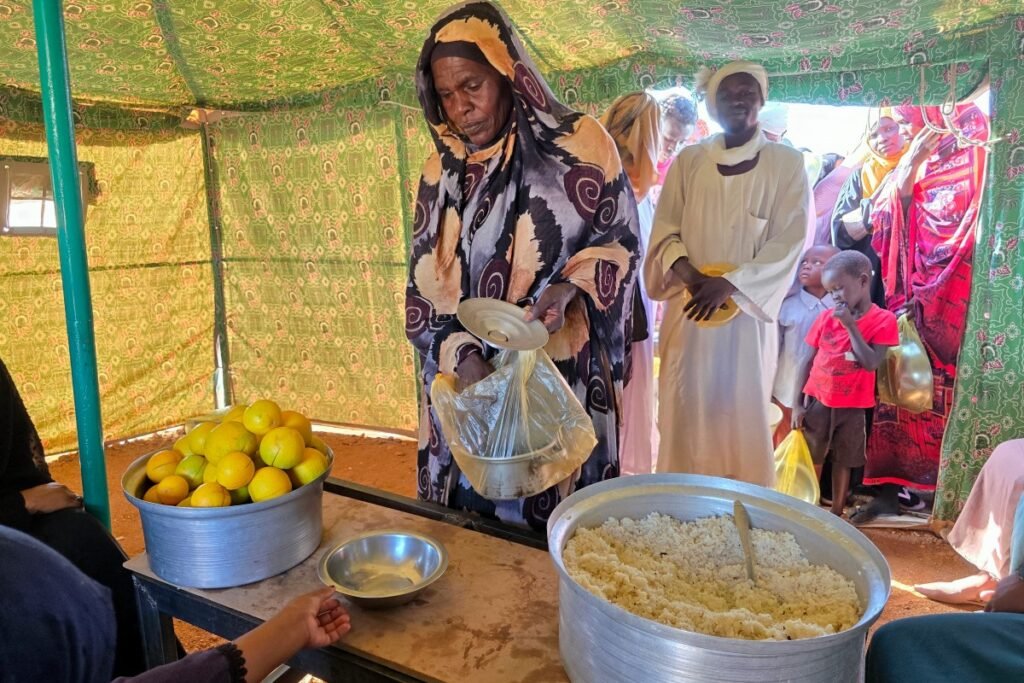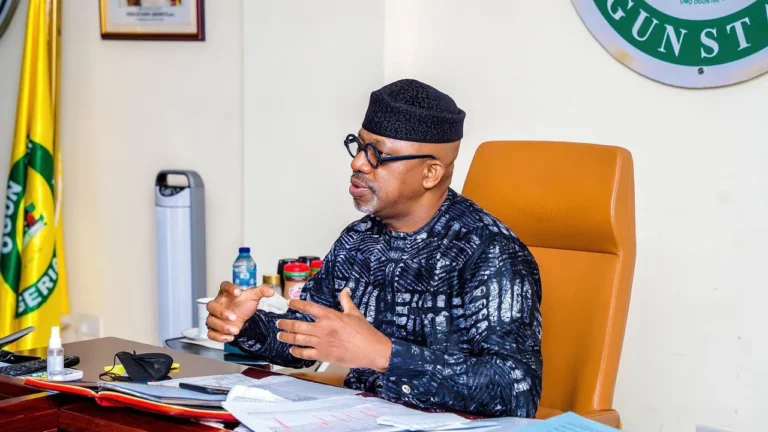
(FILES) A woman collects food at a location set up by a local humanitarian organisation to donate meals and medication to people displaced by the war in Sudan, in Meroe in the country's Northern State, on January 9, 2025. For the first time in nearly two years of war, soup kitchens in famine-stricken Sudan are being forced to turn people away, with US President Donald Trump's aid freeze gutting the life-saving schemes. (Photo by AFP)
13th February 2025
South Africa exports vehicles worth about $1.9 billion annually, with many shipped to the United States under a trade agreement now under threat as former President Donald Trump increases pressure on the country.
Neil Diamond, President of the South African Chamber of Commerce in the US, said, “I don’t think South Africa stands a chance of getting the African Growth and Opportunity Act (AGOA) renewed.”
AGOA allows African countries duty-free access to the US market, meaning South African cars enter the US without tariffs.
This deal has significantly boosted South Africa’s auto industry, with vehicles making up 22% of its exports to the US, worth about $1.88 billion—second only to precious metals, according to government data.
Seven major automakers—BMW, Ford, Isuzu, Mercedes-Benz, Nissan, Toyota, and Volkswagen—operate in South Africa.
Billy Tom, head of The Automotive Business Council (Naamsa), highlighted the industry’s impact: “It employs half a million people across the value chain.”
AGOA is set for renewal in September 2025, and its potential loss could be devastating for South Africa, its biggest beneficiary.
“The US is our third-largest export market, and that market has grown over the years,” Tom told AFP.
He estimates that 86,000 jobs are directly linked to AGOA, with another 125,000 in supporting industries such as suppliers and subcontractors.
Renai Moothilal, head of the National Association of Automotive Component and Allied Manufacturers, warned: “Without AGOA, the supplier base will suffer, and in the long run, the industry in South Africa may not survive.”
Political Tensions
South Africa’s position on global issues has drawn criticism from Washington.
Elon Musk, a Pretoria-born billionaire close to Trump’s circle, has condemned South Africa’s land policies, calling them “racist laws.”
Additionally, South Africa’s foreign policy—aligning with Russia and China and leading a case against Israel at the International Court of Justice—has further strained relations with the US.
Richard Morrow of the Brenthurst Foundation noted that AGOA requires beneficiaries to align with US foreign and security interests. “Trump could use this clause to justify cutting South Africa off from AGOA benefits,” he said.
Past US administrations have used AGOA as a tool of influence. In January 2024, former President Joe Biden removed Central African Republic, Gabon, Niger, and Uganda from AGOA.
Trump, however, may have another motivation—protecting US auto jobs, Morrow explained: “Trump has long seen the auto sector as a symbol of America’s economy. It’s a key industry for his working-class voter base.”
Trump could remove only the auto sector from AGOA while keeping other industries in the program.
Economic Uncertainty
Ironically, many of the companies affected would be European and Japanese manufacturers, key US allies, noted Isaac Khambule, a political economist at the University of Johannesburg.
For now, the biggest issue is uncertainty. Businesses are unsure whether to invest or plan for possible disruptions.
“Uncertainty alone can hurt investment,” Khambule warned.
If AGOA is not renewed, South Africa’s auto industry—and its workers—could face serious challenges.



